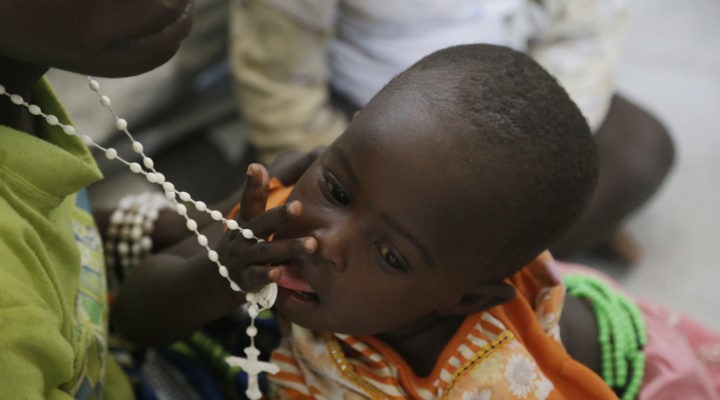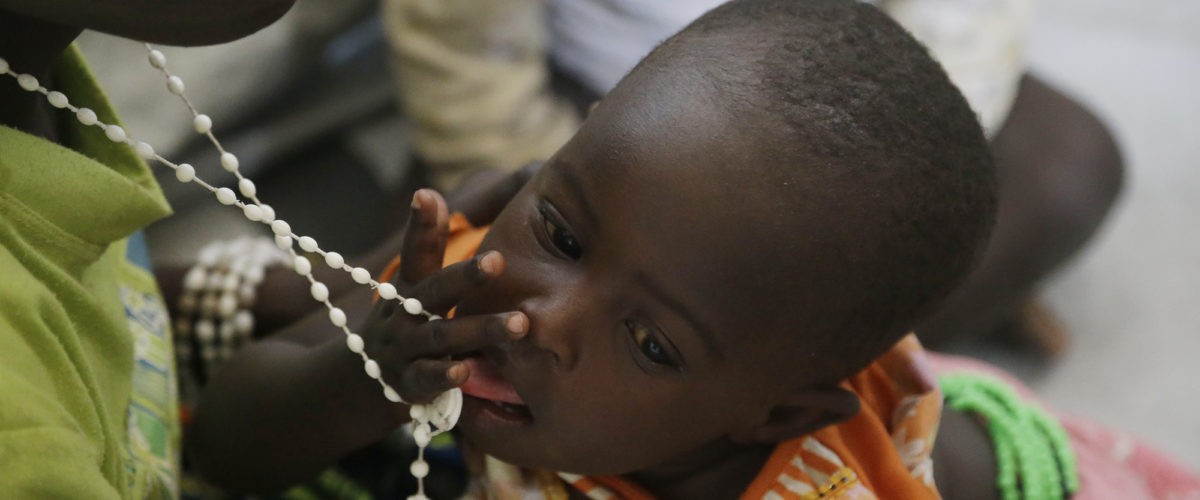It’s a circus many are already long familiar with. Most times when the Nigerian Army comes out with a strong statement on Boko Haram, the terrorist group in northern Nigeria, or its leader, Abubakar Shekau, something usually happens to repudiate the claim.
This was the case two weeks ago when Shekau, who had been in hiding, was declared wanted by the Nigerian army, alongside some top members of the organization. In response, Shekau, in a new video, said he cannot be captured because he is doing God’s work.
“I’m very sure God will protect my commanders. We are all doing God’s work.”
“Nobody can apprehend me, because I’m doing God’s work. He will protect me like those doing similar work and seeking his protection,” Shekau boasted, adding that his commanders will remain as elusive as him. “I’m very sure God will protect my commanders. We are all doing God’s work.”
Boko Haram’s legacy
This is the latest pronouncement from a man whose group activities in northeast Nigeria have negatively impacted 15 million lives, caused more than 20,000 deaths and displaced 2.2 million people from their homes, according to a recent World Bank report.
Boko Haram, which in the Hausa language translates as “education is forbidden,” is also known as Jamā’at Ahl as-Sunnah lid-Da’wah wa’l-Jihād. The group has abducted and held hostage countless people — Muslims and Christians alike — mainly in Nigeria’s northeast where it has, since 2009, waged its war of terror. Among its hostages are more than 100 girls abducted from their school in Chibok, Borno state, in April 2014, as well as Leah Sharibu, the Christian girl who was kidnapped along with many other Muslim girls from their school in Dapchi, Yobe state, on Feb. 19, 2018, but is still in custody of her abductors while her colleagues have been freed.
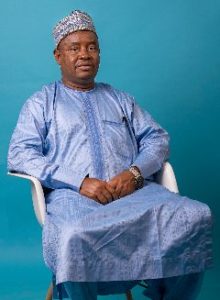
Salim Musa Umar
Sharibu’s fate is, in fact, evidence of Boko Haram’s divisive style, deepening mistrust and enmity among people of different faiths in a multiethnic, religious country. As a result of this distrust, many otherwise innocent persons, going about their legitimate businesses, are classified as Boko Haram members, according to Salim Musa Umar, chairman and founder of Farmers and Herders Initiative for Peace and Development Africa. “The insurgency has no doubt disrupted the societal norms with negative consequences for the pastoralists communities in northern Nigeria and even beyond since the pastoralists are viewed with unprecedented suspicion all over the country.”
Farmer-herdsmen targeted
While some Nigerians believe Boko Haram members disguise as herdsmen or infiltrate their ranks — to wreak havoc in the south and central parts of the country with a mainly Christian population where farmer-herdsmen clashes had been common in recent years over grazing routes — Umar thinks it’s more complicated than that.
“The nomads have found themselves in a very dicey situation where they are faced or are caught up between the devil and the deep blue sea,” Umar said. “Many of them were victims of the insurgency since their only source of livelihood has been lost. Their cattle were rustled by armed bandits and being predominantly cattle rearers with no other additional skills or education, criminality crept in and this is where we are now.”
“The Western countries that have such capabilities are not willing to provide that.”
Negative narratives fueled by hostile media are cited as further problems for this part of the population, he continued. “The media profiling is contributing negatively in portraying all herders as criminals. This is most unfortunate and can only lead to more challenges. Crime and criminality are not exclusive to a particular race or religion.”
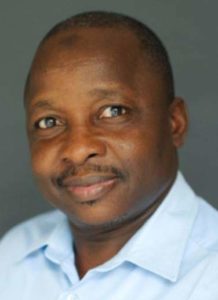
Sadeeq Shehu
Sadeeq Shehu, former Nigerian air force officer and adjunct professor at George C. Marshall European Center for Security Studies, agrees that the crime rate, beyond socio-economic challenges, has worsened in the northern part of Nigeria. “It has ravaged the region economically and socially. It has also given other criminal elements — bandits, kidnappers, cattle rustlers — the confidence that they too can carve out territories within the vast ungoverned spaces and confront government forces.”
Reacting to Shekau’s latest video remarks, the professor said: “It is a continuation of Shekau’s tactics of periodically not only announcing that he is alive but also announcing to other Boko Haram factional leaders that he is still in charge. That he has eluded arrest is not really surprising. He knows the terrain better than our troops and fact is, our troops do not have the satellite tracking assets to pinpoint Shekau’s position. The Western countries that have such capabilities are not willing to provide that.”
From his hideout, Shekau directs and inspires his fighters. While the insurgency may not be as potent as it was five years ago when Muhammadu Buhari assumed power as Nigeria’s president, many who expected that the bloodletting and suffering associated with it would have ended by now are disappointed as Boko Haram still occasionally strikes, killing civilians and soldiers alike and striking fear in the heart of residents.
Weak government
Ray Maina, a Christian minister, believes the Boko Haram war has sustained up to this point because the Nigerian government “seem to be weak or incompetent enough to handle the evil, partly because it was deliberately created (encouraged) by past leaders who have found themselves on the opposition team, over the past decade.” These leaders, he said, “have turned out to be devils in the house and are out against any regime and the people by creating a storm which they believe only they can save the ship.”
He believes such people know the secrets of the nation and have loyalists who they are recruiting with their ill-gotten wealth. “The present regime, like its predecessor, can’t handle the matter because, any time (concerned people) point an accusation finger against a suspect, it turns out to be an accusation against a regional hero. For now, Nigeria hasn’t got a leader committed, knowledgeable and strong enough to clear the menace of Boko Haram.”
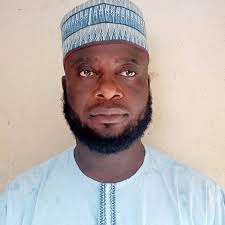
Murtadha Muhammad Gusau
Murtadha Muhammad Gusau, chief imam of Nagazi-Uvete Jumu’ah, recalls the optimism in Nigeria and elsewhere that led to Buhari becoming president in 2015: “A majority of Nigerians voted against President Goodluck Ebele Jonathan and in favor of President Muhammadu Buhari, but few paid attention to the central role of the Boko Haram insurgency in our national security and politics. Buhari’s electoral success was largely predicated on his promise to fight insecurity and corruption. In his few weeks as president, he put in place a new leadership in the military which rolled back Boko Haram into enclaves in Borno and Yobe states. A few people were arrested on suspicion of diverting defense funds. The nation was lulled into the illusion that it had won the war against the insurgency, and all that remained was to sweep away the carcass of the enemy.”
Within this period, Shekau was alleged on at least two occasions to have been killed by the Nigerian army as statements attributed to some of its personnel show, but that always turned out to be false.
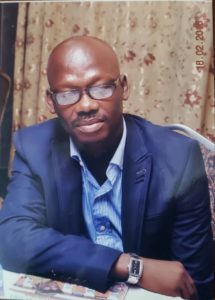
Emmanuel Ayisire
To some, like Emmanuel Ayisire, assistant commander general of the Vigilante Group of Nigeria, overnight success against Boko Haram would have been extraordinary.
“To people who do not understand the nature of insurgency or terrorism, their hope may be misplaced. However, we should know that insurgents or terrorists do not adopt conventional warfare tactics,” Ayisire said. “These people sometimes occupy territories, but they prefer to mix with the population and adopt guerilla warfare. They hit at soft targets and retreat to their hideout.”
Buhari administration successes
Before the advent of Buhari’s administration, “the insurgents were said to have occupied and taken control of some local government areas in Borno state,” Ayisire continued. “Today, the Buhari administration has successfully taken back these territories and local government areas and no inch of Nigerian soil is under the control of Boko Haram.”
Currently, he said, “the Buhari administration has reduced Boko Haram to a pocket of spoilers and kidnappers, although this may not be adequate or good enough for peace and development. What is required at this stage is for the government to gain the confidence and trust of the local population by creating an army of civilian population and informants that will act as eyes and ears of the government. This is where in my opinion, the Vigilante Group of Nigeria, a foremost community policing organization in Nigeria needs to be incorporated into the security system of the country. ”
Local vigilantes have been involved in the fight against Boko Haram since the days of the Jonathan administration, serving as members of the joint task force with the military, and their efforts have over time been acknowledged by respective administrations. But with victory not yet achieved, the Buhari administration keeps looking for options.
Controversial amnesty
One is the offer of amnesty to repentant members of Boko Haram, similar to the one granted militants in the oil rich Niger Delta during the administration of Umaru Yar’Adua, Jonathan’s predecessor. Not a few Boko Haram fighters have renounced their membership in embrace of the government’s amnesty, to the chagrin of Shekau, who denounces them as turncoats who “left the fold of religion.”
Some people feel the havoc perpetrated by the Boko Haram group is such that granting amnesty to its members is akin to rewarding impunity.
Nigerians are, however, divided on amnesty. Some people feel the havoc perpetrated by the Boko Haram group is such that granting amnesty to its members is akin to rewarding impunity. If those who kill, maim, rape and loot are pardoned and even rehabilitated at public expense, what about the victims or surviving members or those who lost property or livelihood to the insurgency?
Umar, for one, says that “pastoralists have lost a fortune in the fight against insurgency and will very much appreciate compensation from the government.”
Shehu, while noting the necessity for amnesty, has some advice for the government: “Truth is, amnesty in one form or the other is ultimately unavoidable in a non-international armed conflict where the government forces are confronting insurgents who are also citizens. Unlike an international armed conflict where at the end of the conflict, fighters/soldiers return to their individual countries, at the end of a non-international armed conflict government soldiers and insurgents who did not die will both have to remain in the same country. This makes amnesty inevitable.”
However, amnesty should not be available to all, Shehu said. “Those who committed grievous offenses and senior leaders must be prosecuted.”
Maina, the Christian minister, proposes a road map to peace: “For the government to really succeed, it has to develop a national, not regional, security strategy that is workable within the African context, and a new breed of young security personnel should be recruited and trained under new, young, committed security heads.”
To Shekau and his members who claim inspiration from Allah, Imam Gusau said their understanding of Islam is wrong: “Violence and terrorism cannot and should not be associated with any religion, nationality, civilization or ethnic group, as violent extremism and terrorism in all its forms and manifestation including violence against civilians and suicide attacks are against the holy principles of Islam.
“These Boko Haram people (are bereft of) religious knowledge, so their understanding is shallow and they are completely incorrect,” the imam added.
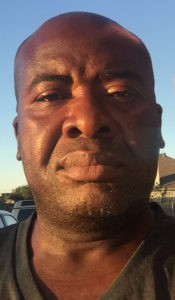 Anthony Akaeze is a Houston-based journalist who began his career in his home of Nigeria. He specializes in reporting on faith from an African perspective.
Anthony Akaeze is a Houston-based journalist who began his career in his home of Nigeria. He specializes in reporting on faith from an African perspective.
This article was made possible by gifts to the Mark Wingfield Fund for Interpretive Journalism.
Related articles:

